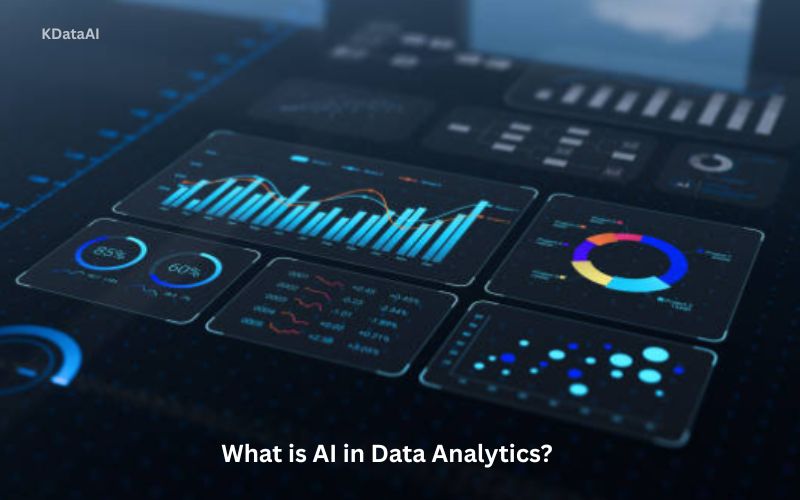
Artificial Intelligence (AI) is transforming the way we interact with data. With its advanced capabilities, AI makes data analytics smarter and more efficient. But what does this really mean for businesses and individuals alike? As organizations are bombarded with vast amounts of information daily, the need for effective analysis has never been greater.
Imagine having a tool that not only processes large datasets but also learns from them to uncover hidden patterns and insights. This is where AI comes into play in the realm of data analytics. It’s revolutionizing how decisions are made, shaping strategies, and driving innovation across various sectors.
If you’re curious about how AI enhances data analytics and want to understand its benefits better, you’re in the right place. Let’s dive deep into this exciting intersection of technology and insight!
What Is AI Data Analytics?
AI data analytics refers to the application of artificial intelligence techniques to analyze and interpret complex datasets. Unlike traditional methods, AI leverages algorithms that can learn from patterns within the data.
This technology combines machine learning, natural language processing, and statistical analysis. As a result, it enables computers to make predictions or recommendations based on historical information.
Organizations use AI data analytics for various purposes—ranging from customer insights to operational efficiency. By automating processes, businesses can save time while gaining deeper understanding of trends.
The power of AI lies in its ability to handle enormous volumes of structured and unstructured data at incredible speeds. It turns raw information into actionable insights in real-time, enabling smarter decision-making across industries.
How does AI enhance data analytics
AI transforms data analytics by automating complex processes. It sifts through vast amounts of information quickly, identifying patterns that would take humans much longer to uncover.
Machine learning algorithms play a key role here. They learn from historical data and improve over time, making predictions with increasing accuracy. This capability allows organizations to stay ahead of trends and make informed decisions.
Natural language processing (NLP) also enhances the way users interact with data. By enabling voice commands and text queries, AI makes analytics accessible to non-technical users, breaking down barriers in understanding.
Additionally, AI can identify anomalies in datasets that may indicate fraud or operational issues. Its ability to analyze real-time data means businesses can react swiftly to emerging challenges or opportunities without delay.
With these capabilities combined, AI sets a new standard for efficiency and insight in the world of data analytics.
Benefits of AI in Data Analytics
The integration of AI into data analytics brings a multitude of benefits that can significantly enhance how organizations approach their data-driven decisions. One major advantage is the ability to process vast amounts of information quickly and accurately. Traditional methods often fall short when faced with large datasets, but AI can sift through this data swiftly, uncovering patterns and insights that may remain hidden.
Another significant benefit lies in predictive capabilities. With machine learning algorithms, businesses can anticipate future trends based on historical data. This foresight enables companies to adapt strategies proactively rather than reactively—an essential factor in today’s fast-paced market.
Additionally, AI enhances decision-making by providing actionable insights derived from complex analyses. Instead of relying solely on human intuition or basic statistical methods, teams equipped with AI tools can make informed choices backed by comprehensive data evaluations.
AI also improves efficiency within organizations. Automated processes reduce manual labor and minimize errors associated with human intervention, allowing employees to focus on strategic tasks rather than repetitive ones.
Moreover, as businesses increasingly rely on real-time analytics for competitive advantage, AI facilitates this need efficiently. Instant access to relevant information helps in making timely decisions that align closely with market dynamics.
With these compelling advantages at play, it’s evident that leveraging ai for data analytics not only boosts performance but also transforms the way organizations perceive and utilize their data resources effectively.
